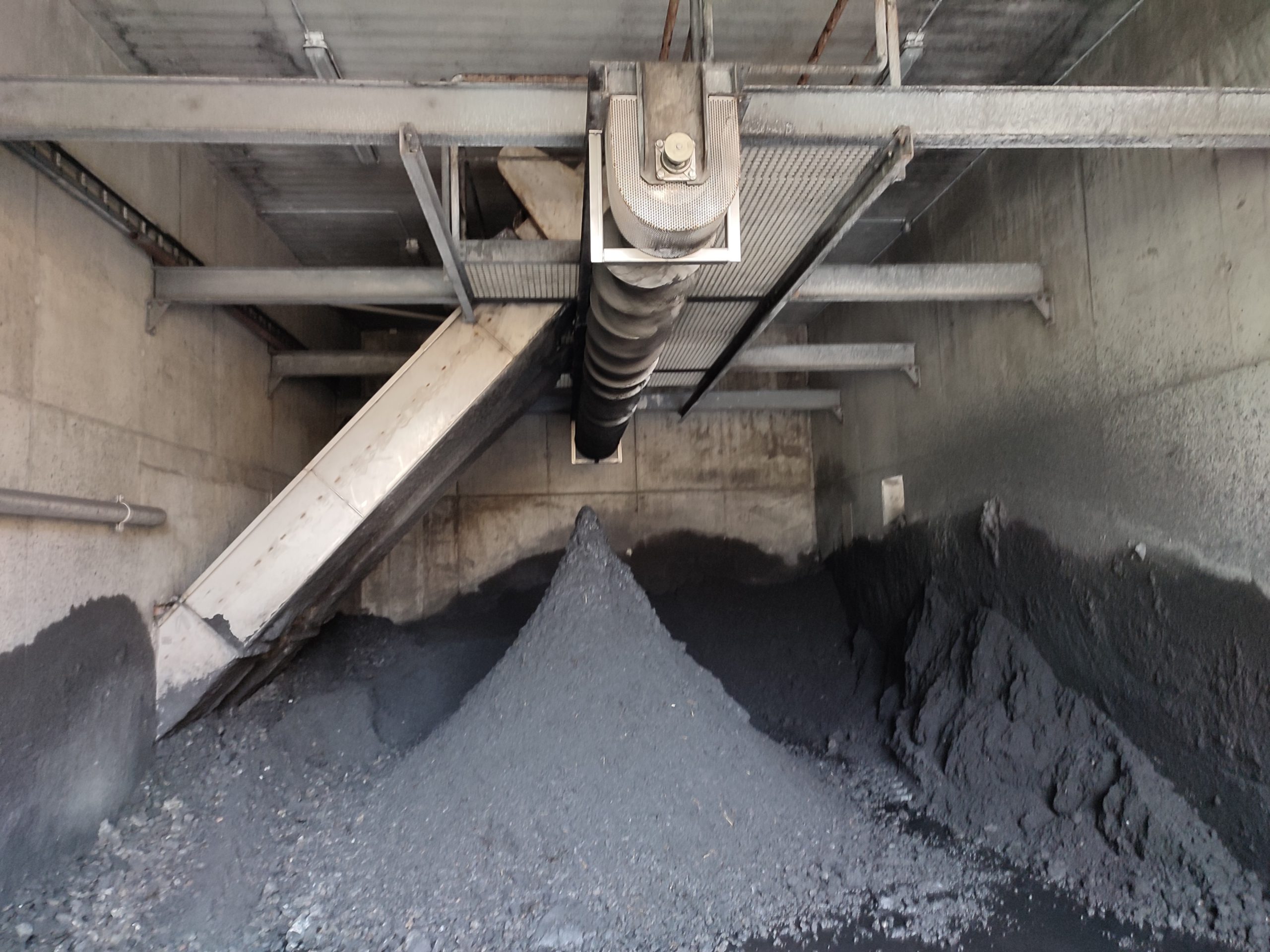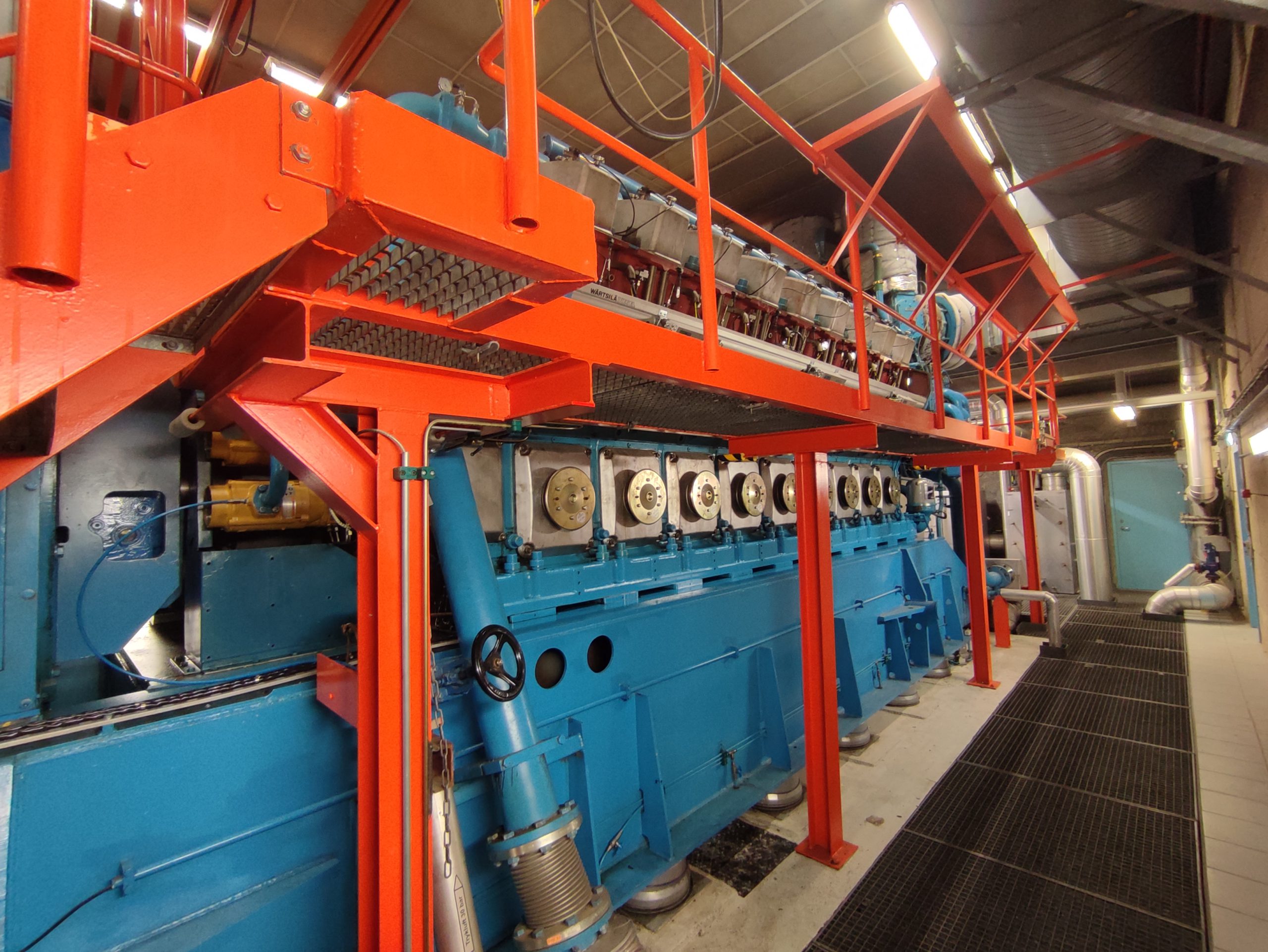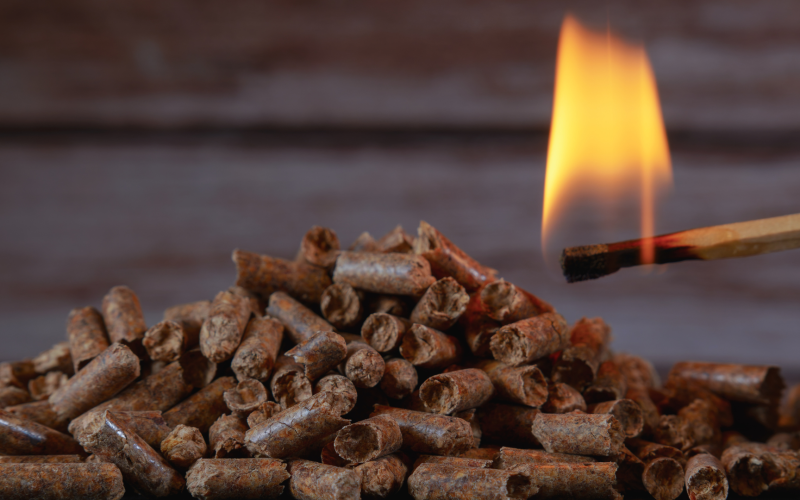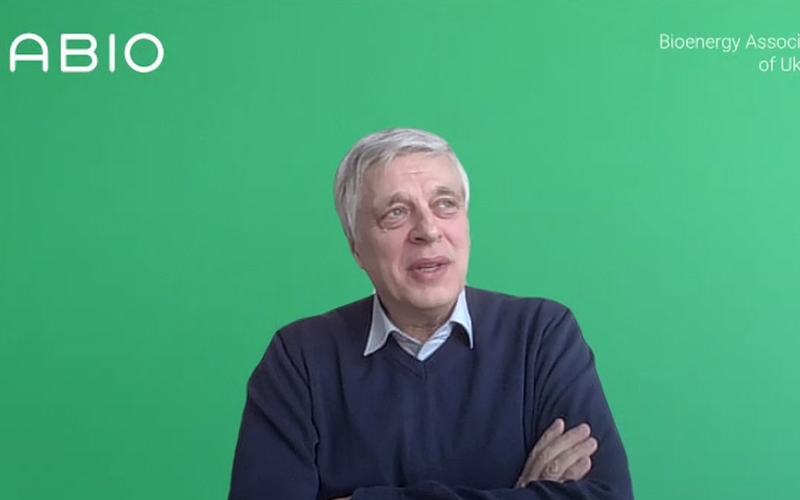From 100% to 5% — the Danish CH company Ringsted Forsyning reduces the use of fossil fuels due to the introduction of RES in less than 40 years
The efficiency of heat generation is 103%, and the cost of services for consumers has not changed for 12 years. This is not a fairy tale, it is a real experience of using straw in the modern district heating system of the city of Ringsted in Denmark.
The Food & Bio Cluster (Denmark) organized a tour of the Ringsted Halmvarmevaerk straw boiler house of Ringsted Forsyning company under the AgroBioHeat project. During the event, it was possible to get acquainted with the features of this facility. Among the participants of the event was Semen Drahniev, an expert of the Bioenergy Association of Ukraine, who prepared materials for SAF on the operation of the boiler house.
A presentation of Ringsted Forsyning company is already available on the SAF platform.
Green transformation had in four stages:
- 1983 – the first two straw boilers with a capacity of 8 MW were installed, and there was a transition from the use of fuel oil to natural gas;
- 1997 – began to use CHP on natural gas with a capacity of 11 MW and 13 MW;
- 2009 – two new straw boilers with a total capacity of 17 MW were installed;
- 2020 – three heat pumps with a total capacity of 10 MW were installed.
Ringsted’s district heating system is now connected to various facilities that consume heat equivalent to 7,000 private households. The length of the heating networks of the district heating system in the central part of the city is 124 km.

Fuel, quality requirements, supply, and preparation
Baled straw is the main biofuel for the boiler house. Electricity from wind, solar and hydroelectric power plants is used to operate heat pumps. The CHP operates on a mix of natural gas and biomethane to sell electricity to the balancing market and can go from 0 to 100% load in 15 minutes. Currently, the share of biomethane in the Danish gas network is already 20-30%. In 2020, the CHP operated for 700 hours, and the heat was generated, which provided about 6% of heat needs.
Baled straw is purchased at tender from farmers who offer the best delivery terms. Biomass contracts are signed for a period of 1 to 3 years. The actual cost of straw is 85-90 euros / t with delivery to the boiler room. The humidity of each bale is determined by means of special sensors. On average, the humidity of straw is 11-12% of the heat needs.
In the warehouse, the boiler bales of straw are captured by the crane automatically and pass through a metal detector before being fed to the grinding system. If there is metal, the bale is set aside and does not fall on the shredder conveyor.

Stable cost of services for 12 years
Thanks to a comprehensive approach, the company’s energy generation is optimized for the needs of consumers and the availability of RES resources. Despite the significant growth of the consumer price index in Denmark, the application of innovations makes it possible to maintain a stable subscription fee for the last 12 years.

Organization of the boiler room operation process
Currently, two boilers with a capacity of 8.5 MW each are used, which until recently provided about 75% of heat demand. In the future, it is expected that only 45% of thermal energy will be obtained from straw boilers. The rest of the straw, which will account for 30% of previous biomass needs, will be used in other boilers and biogas plants.
After burning the straw, the ash is returned to the farmers, who use it as fertilizer in the fields. The share of ash formed in the mass of purchased straw is about 3%.

Boiler efficiency and flue gas cleaning system
This year, in the boiler house a scrubber for flue gas cleaning was installed, which removes 97% of SO2. A heat pump has also been installed, which extracts heat energy from the flue gases, which has increased the efficiency of heat generation from 93 to 103%.

Source: the article on the SAF platform “Energy usage of straw in a modern integrated district heating system in the Danish city of Ringsted”: https://saf.org.ua/en/news/1422/.
It will be recalled that UABIO is a partner of the SAF Ukraine (Sustainable Agribusiness Forum) that was created in 2017 on the initiative and support of the European Bank for Reconstruction and Development (EBRD).


